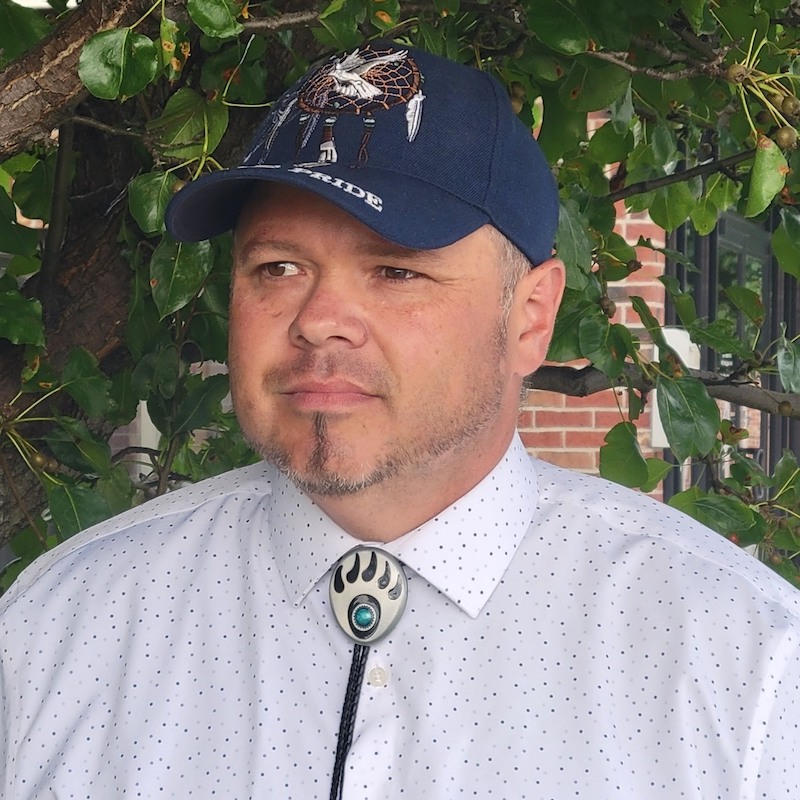The Iowa Tribe of Kansas and Nebraska plans to build a shipping nexus at a site near the Missouri River and will leverage a free trade zone to open new doors for its economic development strategy.

Creating a free trade zone in Holt County, Missouri allows the owners to import and then export foreign goods without paying an excise tax, duty or tariff under certain conditions, such as assembling or manufacturing finished goods in the U.S. before sending them out.
In this case, the Iowa Tribe’s site is sponsored by the Kansas City Foreign Trade Zone and will serve as a seed for the tribe’s renewed efforts in the shipping industry, said Chairman Timothy Rhodd.
The zone provides an often-cheaper avenue for foreign enterprises hoping to open new markets, while placing the tribe in a position to economically benefit as the middle man in those transactions.
“What that is is a tool to attract large businesses that are importing goods into the United States. A lot of these big companies can come in and as long as those products can be manipulated in some way or another, it will do away with tariffs,” Rhodd told Tribal Business News. “It’s going to contribute to our economy and our workforce.”
A free trade assembly line will provide jobs for local tribal members as well as set up the tribe for other shipping pursuits in the future, Rhodd said. He pointed to a potential partnership with national food distributor US Foods, as well as a synergy with the tribe’s existing Grey Snow Trucking subsidiary.
The site’s position near the Missouri River, as well as burgeoning relationships with the Kansas City Airport, mean the Iowa Tribe can fire on all cylinders, Rhodd said. In addition, the tribe plans to add cold storage and processing facilities to the site, further pulling in its regenerative agriculture operation to provide new products in expanding markets.
“With this zone and a lot of the stuff we’re doing and building, we’re setting the foundation for the Iowa Tribe to become the only Indigenous US Foods distributor, for example,” Rhodd said. “There, we’re trying to capture more of the food dollar, building on our local direct marketing operations by establishing national supply chains for food. It’s going to be a tremendous contribution to our tribe.”
As for aspiring overseas partners for the free trade zone, Rhodd said a recent trip to Australia by way of the First Nations Trade Mission began talks that could morph into fruitful relationships.
“We are working with Australians on developing the zone and what that zone can do for other countries and the Iowa Tribe and the United States,” Rhodd said. “We’re looking at a really good opportunity here.”
The Iowa Tribe’s effort follows a history of tribal ventures into the free trade space, hoping to capitalize on clearing higher profits on exported goods by way of the reduced tariffs and duties. According to a Bureau of Indian Affairs examination, a total of seven tribes have attempted to establish free trade zones since the zones were first ratified in 1934.
Of those seven tribes, the Citizen Potawatomi Nation in Oklahoma maintains the only active free trade zone, having established a tribal industrial park in a pre-existing free trade zone in the greater Oklahoma City area in 2015.
Other efforts, such as the Four Winds Foreign-Trade Zone Corporation established between the Cabazon Band of Mission Indians, the Torres Martinez Desert Cahuilla Indians, and the Twenty-Nine Palms Band of Mission Indians, have run into regulatory issues and don’t appear to be active.
The Iowa Tribe plans to begin development in earnest on the free trade site in spring 2023 after selecting contractors for the project, Rhodd said.
In addition to the zone, the Iowa Tribe operates myriad other enterprises just getting off the ground. Those ventures range from working with other tribes to build solar projects to shipping and selling fiber optic cable in the wake of a surge of funding for broadband operations across the country.
Rhodd also pointed to a burgeoning industrial hemp program and a developing national park as examples of the tribe’s upcoming plans, all of which are woven into the tribe’s existing businesses and experiences to create a more cohesive enterprise.
“I could talk about the 10,000-foot view of our future plans for hours. We have so much going on,” Rhodd said. “It’s all connected, and because it’s all connected, that’s why we’ll be successful.”
